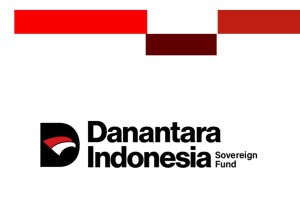KPI partners with GML to boost aviation fuel production from used cooking oil
PT Kilang Pertamian Internasional (KPI) is collaborating with PT Gapura Mas Lestari (GML), a used cooking oil exporting company, to meet the raw material needs in the production of bioavtur or sustainable aviation fuel (SAF).
Taufik Aditiyawarman, President Director of KPI, said that this collaboration is to strengthen collaboration between the public and private sectors in achieving sustainable energy goals in Indonesia.
"The collaboration between KPI and PT GML with experience in the supply chain from collection to UCO supply is expected to support and guarantee the supply of feedstock for the Cilacap Green Refinery Project," Taufik said on Monday, December 16, 2024.
He said that this project is planned to process used cooking oil (UCO) feedstock with a capacity of 6,000 barrels per day to produce Hydrotreated Vegetable Oil (HVO) and SAF with a total production estimated to reach around 300 thousand kiloliters per year.
Currently, the Cilacap refinery has been able to produce HVO and SAF. HVO products are processed from Refined Bleached Deodorized Palm Oil (RBDPO) raw materials, which are named Pertamina Renewable Diesel (RD) and are 100 percent derived from vegetable oil.
The resulting HVO product will then become a mixture component in diesel that has superior quality compared to FAME biodiesel.
This product is designed to meet the highest standards of use in countries with four seasons, such as the European and American markets.
Meanwhile, SAF 2.4 percent of the raw material is Refined Bleached Deodorized Palm Kernel Oil (RBDPKO) or from processed palm kernel.
SAF products from the Cilacap Green Refinery are expected to support the supply for the implementation of SAF use in aviation industry fuels, in accordance with the road map and national action plan for the development of the sustainable aviation fuel industry.
"This green refinery project is not only about providing alternative energy sources, but also creating added value for the community, supporting local growth, and reducing environmental impacts," he said.
The Green Refinery project has shown a significant contribution to achieving sustainability components related to handling climate change (SDG 7 and SDG 13).
By processing UCO into environmentally friendly fuels, this project not only focuses on providing renewable energy sources but also plays a role in reducing greenhouse gas emissions and air pollution.
Already have an account? Sign In
-
Start reading
Freemium
-
Monthly Subscription
30% OFF$26.03
$37.19/MonthCancel anytime
This offer is open to all new subscribers!
Subscribe now -
Yearly Subscription
33% OFF$228.13
$340.5/YearCancel anytime
This offer is open to all new subscribers!
Subscribe now






